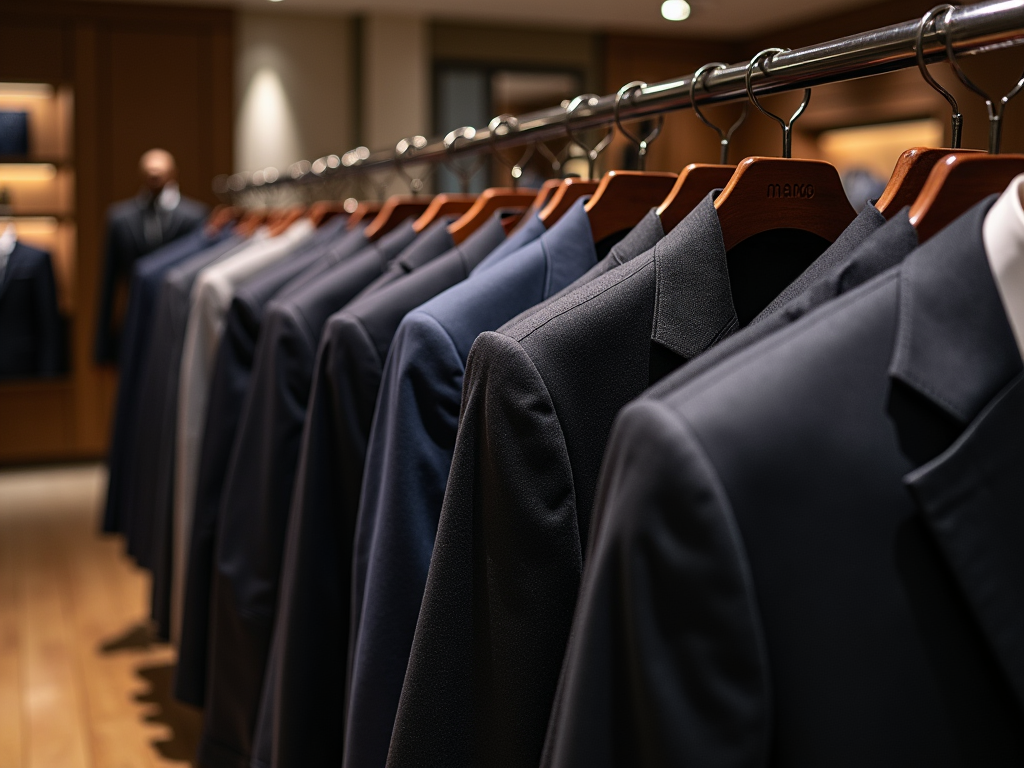
Understanding suit fabrics is pivotal for every man who aims to dress sharply. The fabric you choose can determine not only the suit’s appearance and feel but also its durability and comfort. In this guide, we will delve deeply into the world of suit fabrics, exploring the options available and how you can select the right one for every occasion.
Understanding the Basics of Suit Fabrics

Suit fabrics come in various types, each offering different qualities and aesthetics. Traditionally, wool is the most recognized fabric due to its versatility, but over time, other materials have gained popularity. Factors like the weave and thread count also play critical roles in the fabric’s overall look and functionality. Understanding these basic components can help you make informed decisions when buying your next suit.
The Most Popular Suit Fabrics

Different fabrics suit different seasons, occasions, and personal styles. Here are some of the most popular suit fabrics:
- Wool: A versatile, all-season classic that offers both comfort and durability.
- Cotton: A lighter alternative to wool, great for summer suits.
- Linen: Perfect for hot weather, though it tends to wrinkle easily.
- Silk: Luxurious and soft, ideal for formal wear, though more expensive.
- Polyester: A budget-friendly, durable option, though less breathable.
Advantages and Disadvantages of Popular Suit Fabrics
Each fabric comes with its own set of pros and cons, affecting your decision based on the intended use of the suit. Here’s a look at how these fabrics stack up:
- Wool: Known for its durability and wrinkle resistance, but can be heavier than other fabrics.
- Cotton: Offers breathability and softness, though it may wrinkle more than wool.
- Linen: Highly breathable and cool, but prone to wrinkling and may require more maintenance.
- Silk: Luxuriously soft with a unique sheen, though not as durable and tends to be more costly.
- Polyester: Affordable and easy to care for, but often less comfortable and less breathable.
Besides the popular fabrics, there are specialty fabrics that offer unique attributes for the discerning dresser. For instance, tweed with its rich texture is a fantastic option for colder climates, offering warmth and style. Velvet, on the other hand, is associated with opulence and is often reserved for evening wear or special occasions. While these fabrics may not be as common, they can add a distinct edge to your wardrobe when chosen wisely.
Conclusion
Choosing the right suit fabric requires a balance between style, comfort, and functionality. By understanding the properties of each fabric, including their pros and cons, you can select a suit that meets your needs and personal taste. Whether you opt for the timeless appeal of wool or the luxurious feel of silk, making an informed choice will ensure you look and feel your best at any event. Remember, a well-chosen suit is an investment in your wardrobe that reflects both personal style and confidence.
Frequently Asked Questions
Q1: What is the best fabric for a summer suit?
A1: Cotton and linen are excellent choices for summer suits as they are lightweight and breathable, keeping you cool in the heat.
Q2: How can I avoid wrinkles in my suit?
A2: Choosing wool or wool-blended fabrics can help minimize wrinkles. Additionally, always hang your suit properly on a good hanger after wearing.
Q3: Are polyester suits a good investment?
A3: Polyester suits are more budget-friendly and durable, but they are less breathable and may not provide the elegant look or feel of natural fibers like wool or silk.
Q4: What’s the difference between wool and tweed fabrics?
A4: Wool is a versatile fabric suitable for all seasons, while tweed is a heavier woven wool, ideal for cooler weather due to its thickness and warmth.
Q5: Can I wear a silk suit daily?
A5: Silk suits are best suited for formal occasions or events. Its delicate nature and cost make it less practical for daily wear.




